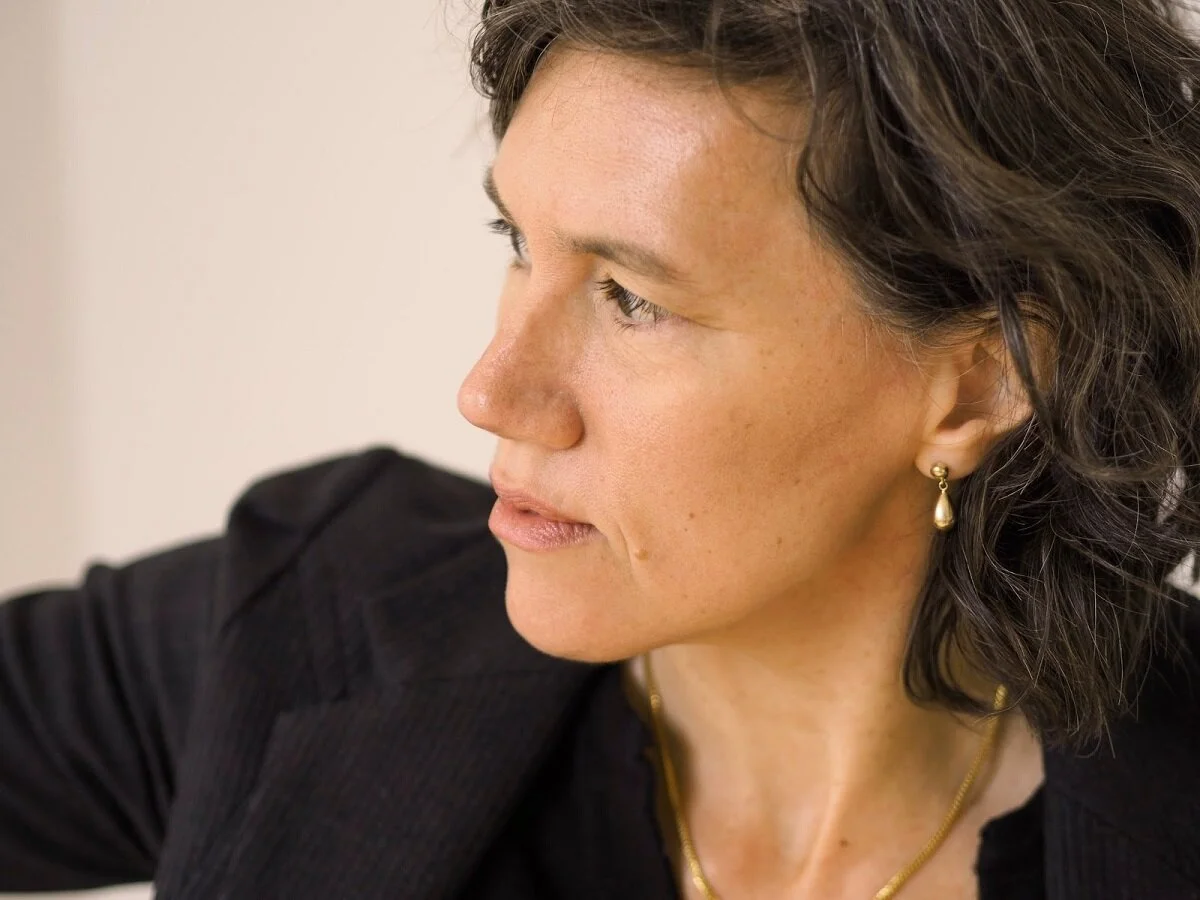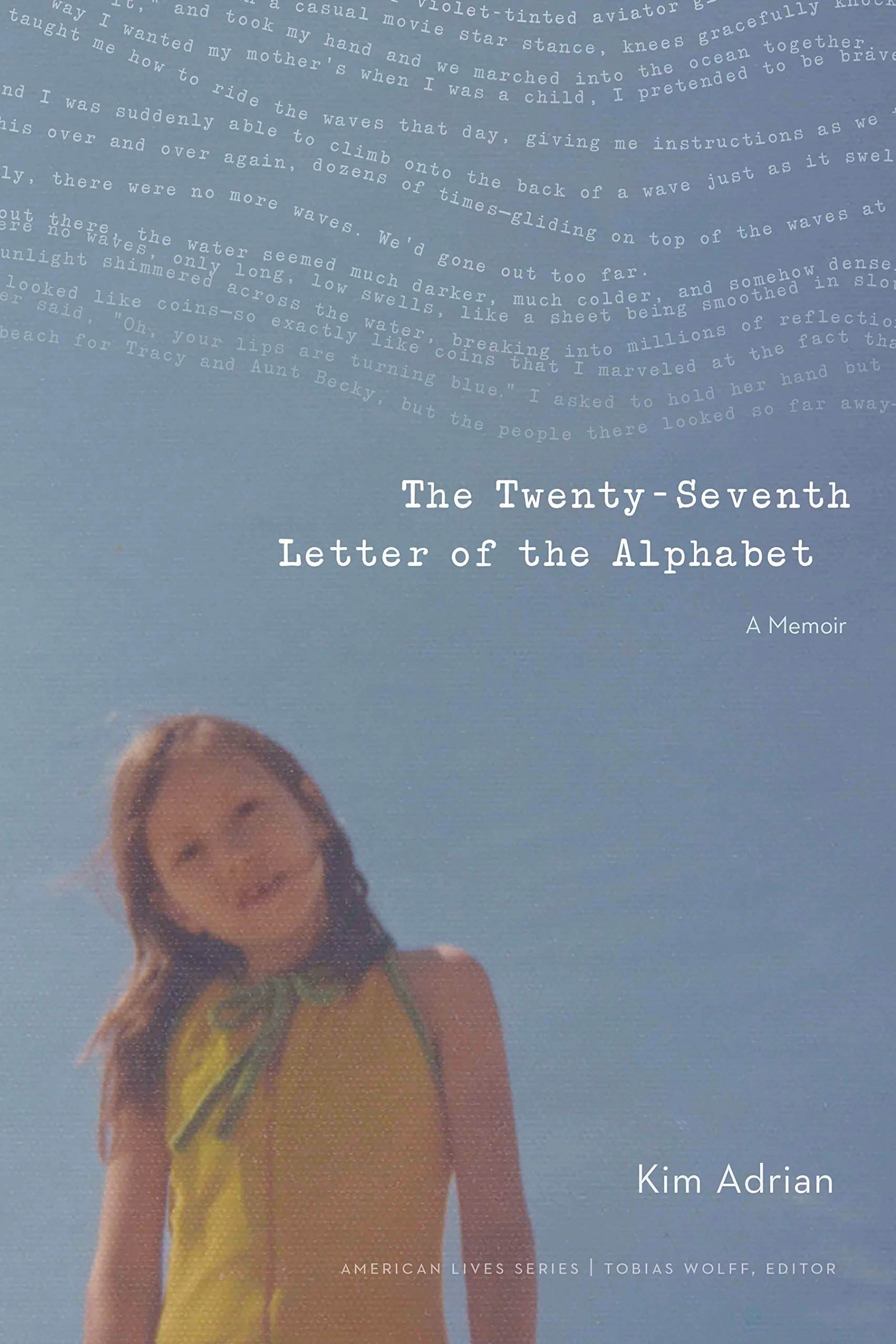Freedom from the Chaos
Absorbing Kim Adrian’s “The Twenty-Seventh Letter of the Alphabet.”
BY JONAH HALL
WHERE DOES one person end and another begin? The umbilical cord we are all born with can never fully be severed. Our attachment to our mothers starts biologically as well as metaphysically. Regardless of science, there is inherent wonder in the way the body grows another body. This connectivity is universal. This doesn’t mean it is always healthy. In fact, the urge for genuine connection may be strongest in those relationships that are stressed from the beginning. We are not meant to be ignored or isolated. So much of our collective modern pain is due to isolation and fear of other humans. Frayed connections. The pandemic has deepened this obvious need for security and connection.
Kim Adrian’s The Twenty-Seventh Letter of the Alphabet is a remarkable rendering of a mother-daughter relationship that is stressed from the beginning. Adrian’s glossary entries (the memoir runs A-Z) are sprinkled with evocative memories, at turns hilarious, repulsive, poetic, and devastating. The form of the glossary works neatly as a conduit for cataloguing the way memory works in our consciousness, popping up unexpectedly and without a need for chronology. To help keep a sense of cohesion, Adrian sets up a narrative within the progression of the glossary that unfolds with some sense of time progression.
Under the letter “B,” we find the term “Boundaries”
“Boundaries – a word my mother puts in air quotes.”
Adrian and her younger sister Tracy spent the first few years of their life (in the early 1970s) with her young parents in small-town New Jersey, before her mother was institutionalized and they were sent to live with her grandparents. The memoir isn’t concerned with chronology, which enhances its mystery. As we move through the memories, we glean she has settled into the Boston area with her husband and two children. For a long stretch of this time, her mother—despite her nomadic dysfunction—lives within a short distance of Adrian and her family, which allows Adrian to keep tabs on her mother, which proves increasingly necessary as the memoir unfolds.
Memories are potent reminders of our existence, but we often bury the most complicated or hurtful ones, giving them dark power over us. We call this our subconscious. Photographs are touchstones for those memories. Adrian’s mother was narcissistically obsessed her own beauty and with the camera—the assorted collection of photos Adrian illuminates are captured moments from a childhood of dysfunction and frayed connection. The process of writing about these photos was clearly a therapeutic practice for Adrian in the end, though sifting through the chaos was a heavy decade of writing labor.
My own relationship with my mother was also stressed from the beginning. I was born six weeks early, into a marriage that had already fallen apart. A year later, my mother was a newly-divorced single parent with two young boys, balancing her teaching career, parenting, a mortgage, and the rest of life near Boston. Like Adrian, I grew up with a fractured family dynamic in which easy comfort was hard to find. Like Adrian, my parents married young and were unable to reach compromises or embrace healthy communication. Unlike Adrian, this constant tension was not physically abusive or easily apparent. Like Adrian, I moved to San Francisco in my mid-twenties with my partner and became a dog-lover, while wrestling with feelings of guilt from moving so far away from my mom. Unlike Adrian, I stayed in the Bay Area. The scene in which she describes packing up her apartment and car and heading back east is harrowing. In her gut, Adrian seems to know she is embracing instability and chaos by returning. As the first child, Adrian’s sense of obligation overwhelmed her need for independence.
The experience of reading Adrian’s memoir was challenging. The form of short entries, divided by each letter of the alphabet, encourages the reader to keep going through the difficulty. I got halfway through, often reading one letter at a time, consistently reflecting on all the complicated mothers of friends I’ve known, in addition to my own. As an English teacher and the father of a four-year-old, I’ve spent much of the last three years collecting alphabet-related paraphernalia, singing songs and doing letter practice. I was determined to find my way to the final symbol—in a twist, following the letter Z.
The text is challenging because of the subject matter. Family dysfunction. Trauma. Mental illness. Narcissism and its impact on children. Psychological instability. Manipulation. Adrian weaves pathos and humor throughout the often-fraught vignettes. Her mother’s overbearing nature and refusal to acknowledge boundaries makes Adrian’s life a never-ending balancing act between the family she was born into and the family she has made. Instead of taking away some of the burden of work and family, her mother adds layers of weight. In addition to her own two children, her relationship with her husband, and her writing and teaching, Adrian’s mother gradually becomes another job Adrian must manage as her mother becomes increasingly paranoid. Keeping her mother in her life progresses from difficult to nearly impossible. And yet…the weight of her mother is so deeply embedded in Adrian’s psyche that removing herself often feels impossible.
Adrian has acknowledged she needed ten years of this process of writing and rewriting to turn the memory fragments into a story and to finally make space in her consciousness for herself. Reading books like Adrian’s, it becomes obvious: by sifting through the wreckage of the past, we might come to the recognition and acknowledgement of our own existence.







